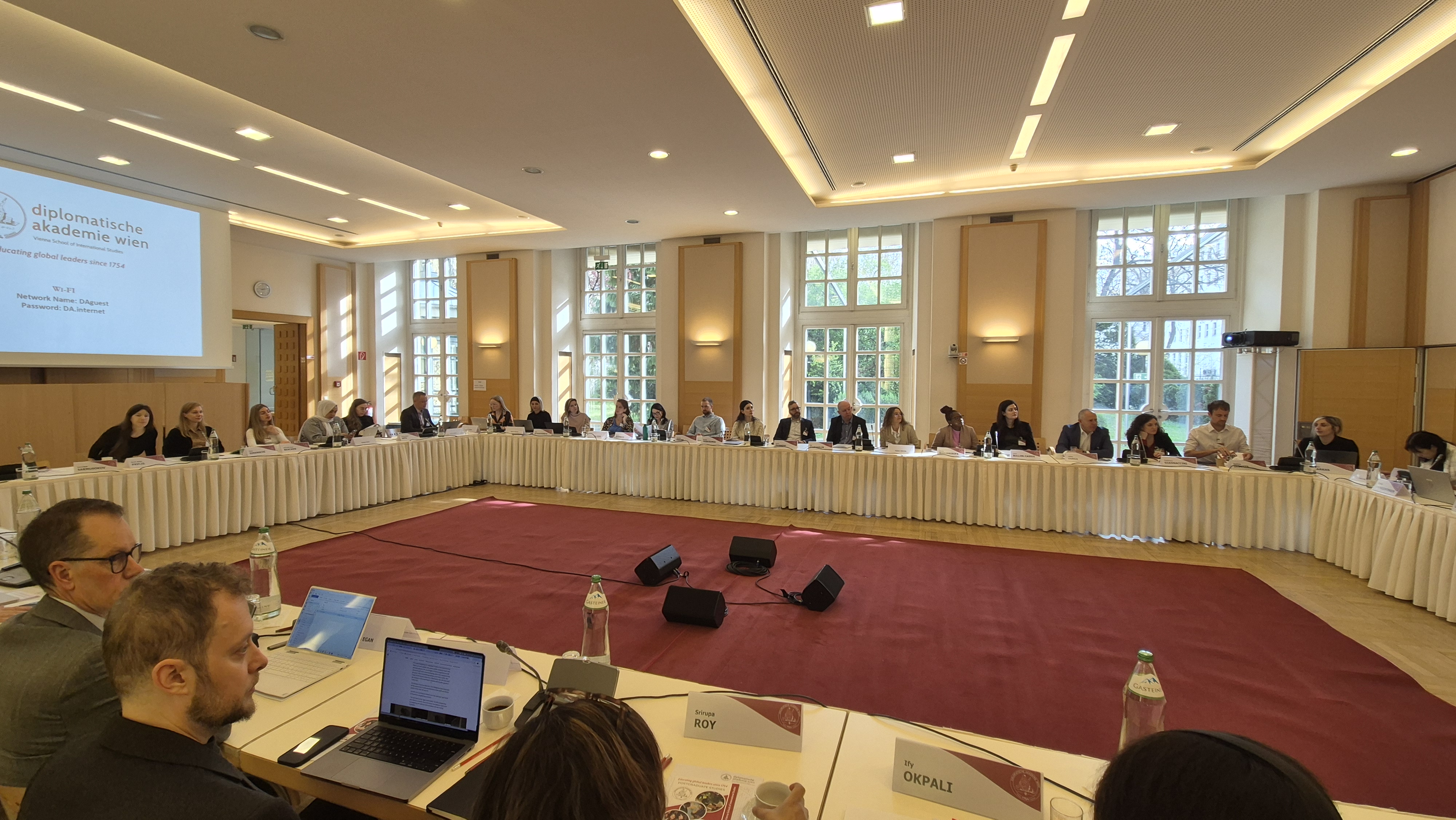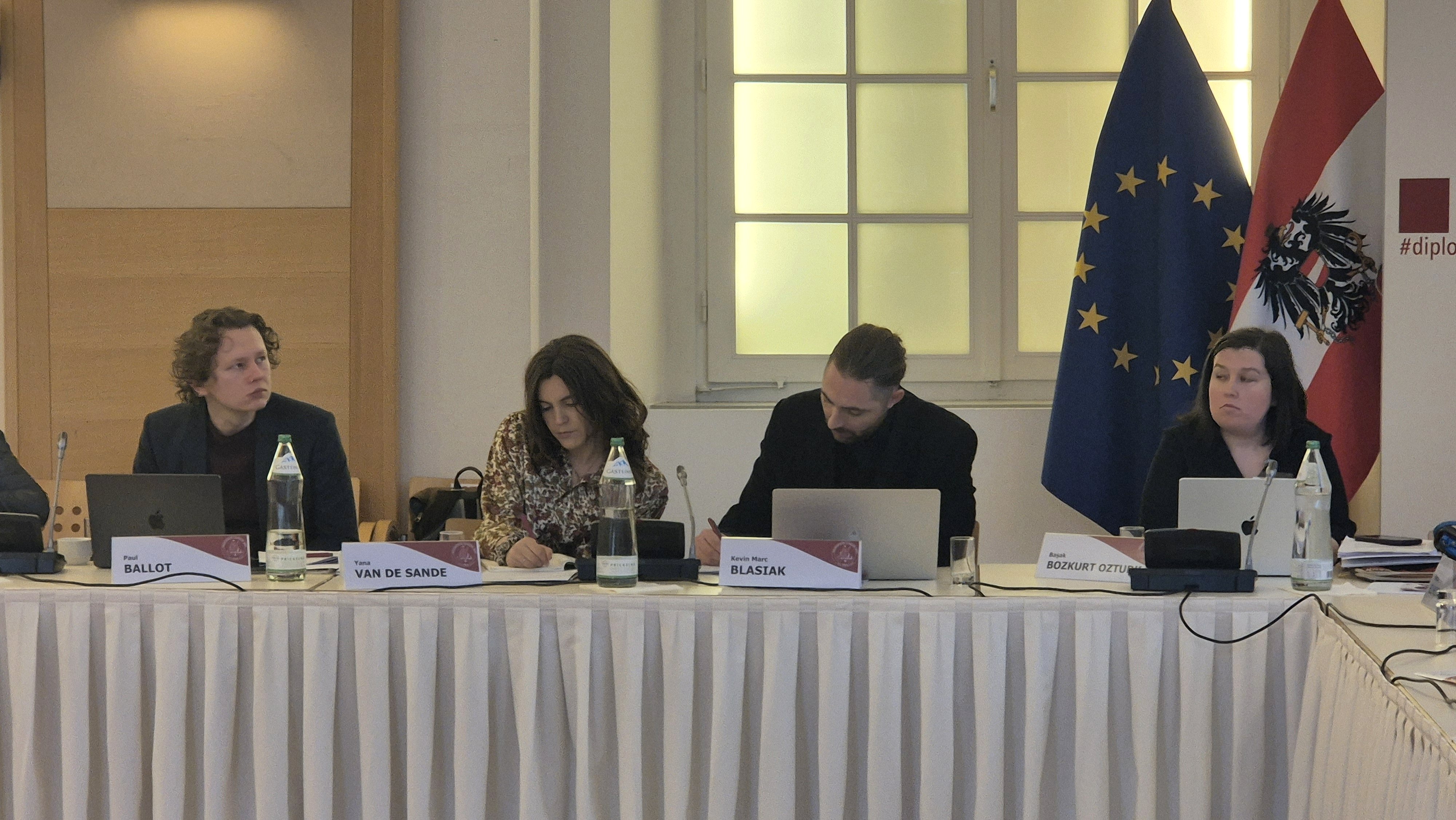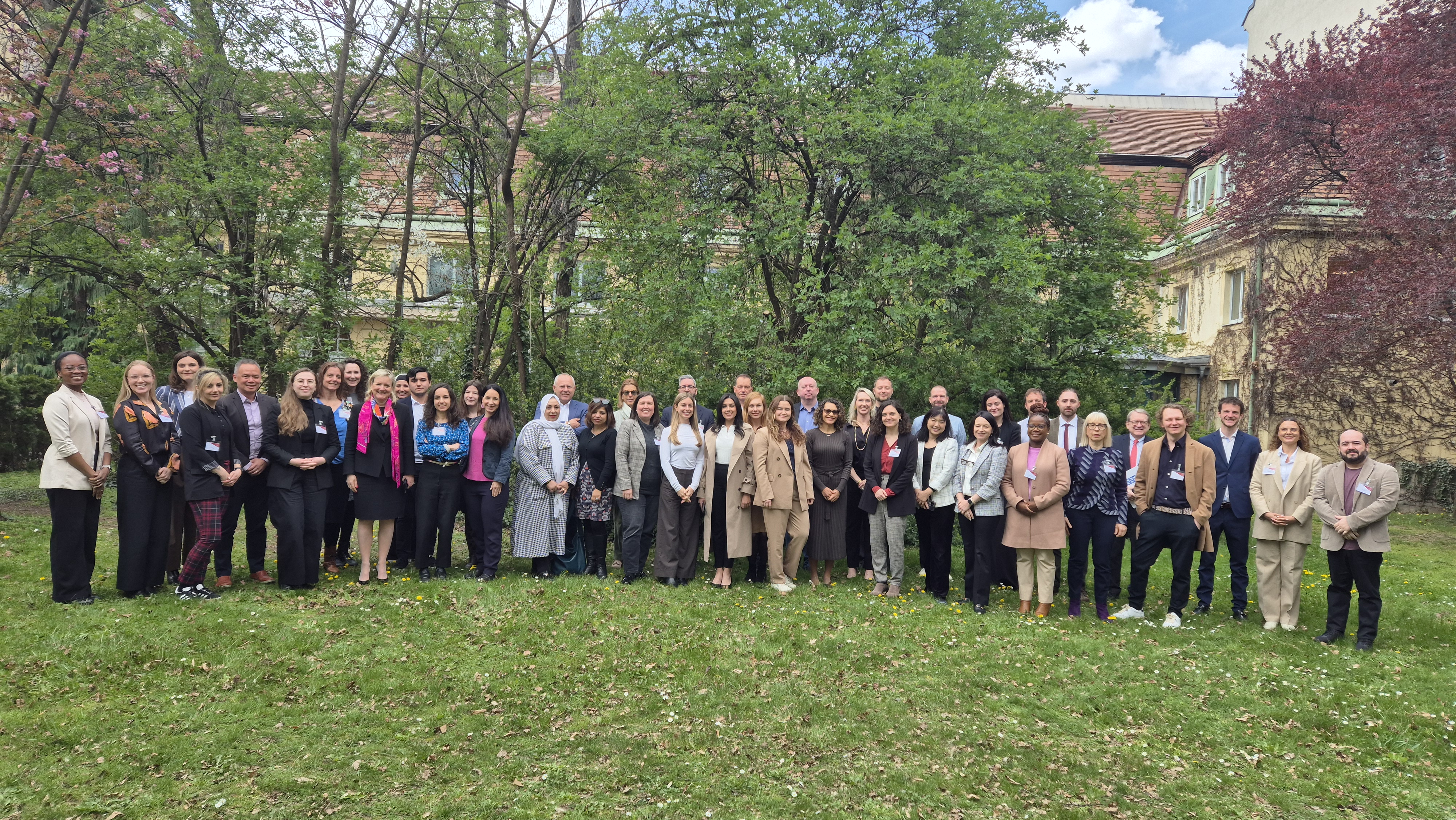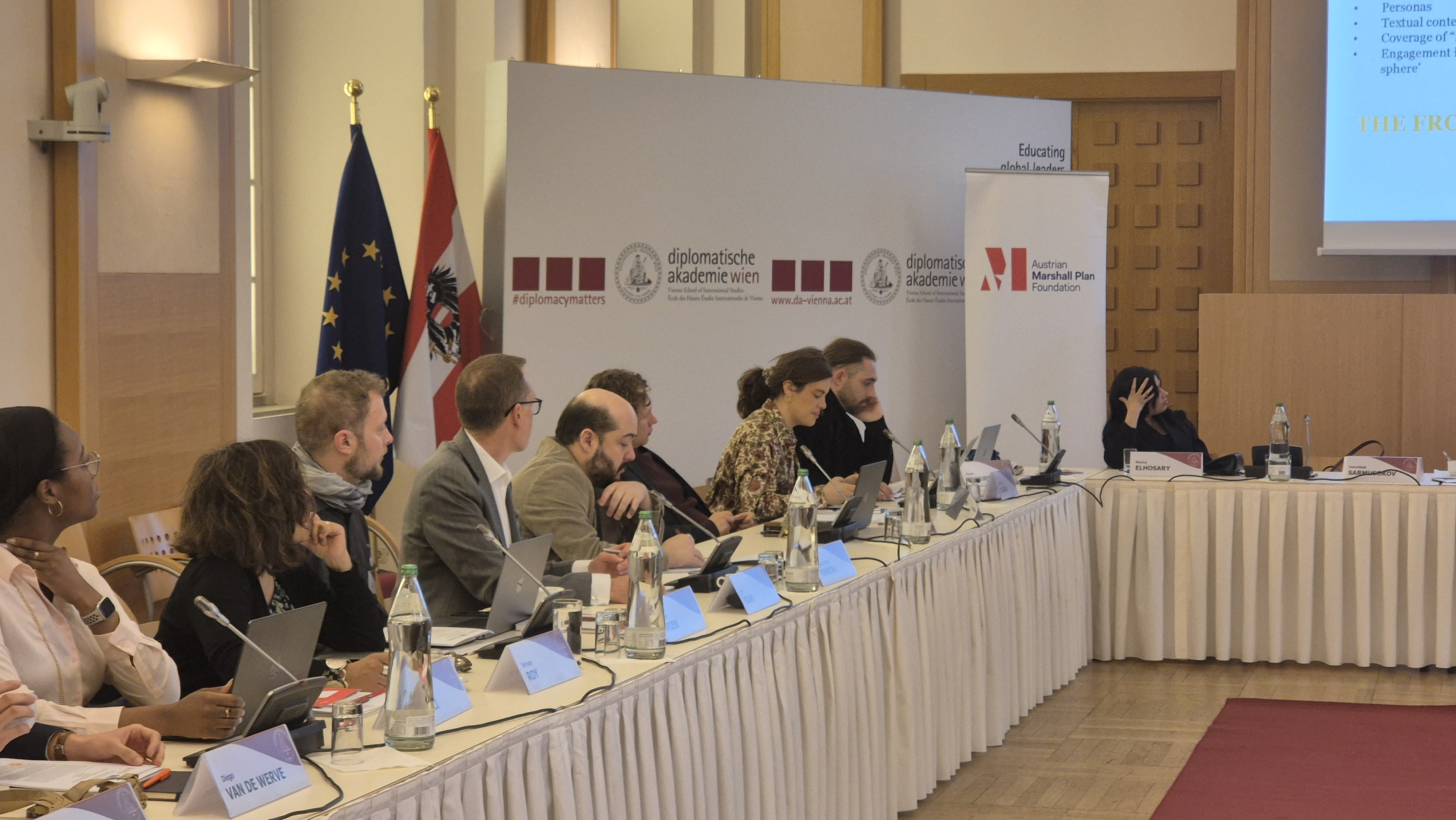This April, Kevin Blasiak was invited to take part in the 2025 Milton Wolf Seminar on Media and Diplomacy, hosted at the Diplomatic Academy of Vienna and co-organized by the University of Pennsylvania’s Annenberg School for Communication, the American Austrian Foundation, and the Austrian Marshall Plan Foundation.
The theme of this year’s seminar — “Ouroboros: The Infinite Loop of Media, Democracy, and Diplomacy” — invited participants to reflect critically on the self-reinforcing cycles that define the current global information ecosystem: technological acceleration, institutional mistrust, and the fragmentation of both media and diplomacy.
The seminar brought together a diverse group of academics, diplomats, journalists, civil society actors, and technologists. Its structure — a continuous, open dialogue rather than isolated sessions — created space for rigorous exchange and new alliances across disciplinary and institutional boundaries. Particularly notable was the emphasis on fostering the next generation of scholarship. A strong cohort of Emerging Scholars from across the globe contributed thoughtful perspectives on issues ranging from online harms and authoritarian media environments to platform regulation and digital resilience. Their work demonstrated that the future of research in this space is both critical and internationally attuned.
As part of the seminar, I (Kevin) had the opportunity to moderate a session titled “The Digital and Analog Ramifications of AI.” The panel featured Fieke Jansen (Critical Infrastructure Lab, University of Amsterdam), Sandra Makumbirofa (Research ICT Africa), Viola Schiaffonati (Politecnico di Milano), and Thomas Schneider (Ambassador and Director of International Affairs at the Swiss Federal Office of Communications). Our discussion addressed the material and geopolitical realities of artificial intelligence from resource dependencies and regulatory architectures to the intersection of AI infrastructures with global governance and political economy.
While the seminar observes the Chatham House Rule to facilitate open exchange, one outcome of our session can be broadly shared: the recognition that global AI governance must be inclusive and fair, considering perspectives from the Global South and beyond. At the same time, regulation should be lean and enabling, careful not to overreach in ways that hinder innovation or introduce excessive complexity. There was also a shared emphasis on the need to include voices from business and industry in these conversations, given their central role in both developing and implementing AI systems.
Beyond the panels, the seminar provided opportunities for informal and meaningful dialogue from a visit and dinner at the Freud Museum to a dinner at a traditional Heuriger in Neustift, graciously supported by the City of Vienna. These moments reinforced the importance of trust, empathy, and community in tackling complex global challenges.
For researchers working at the intersection of informatics, ethics, and society, the Milton Wolf Seminar reaffirmed the need to be at the table in international discussions on media, technology, and diplomacy. The problems we face are deeply sociotechnical and require the kind of interdisciplinary, actionable thinking that responsible computing seeks to advance. This year’s seminar was not only an intellectual exchange — it was also a call to move from critique to collaboration, and from discourse to design.




- April 15, 2025 (last updated)